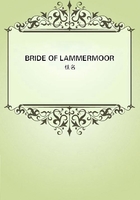
第117章
Why, now I have Dame Fortune by the Forelock, And if she escapes my grasp, the fault is mine;He that hath buffeted with stern adversity Best knows the shape his course to favouring breezes.
Old Play.
OUR travellers reach Edinburgh without any farther adventure, and the Master of Ravenswood, as had been previously settled, took up his abode with his noble friend.
In the mean time, the political crisis which had been expected took place, and the Tory party obtained in the Scottish, as in the English, councils of Queen Anne a short-lived ascendency, of which it is not our business to trace either the cause or consequences. Suffice it to say, that it affected the different political parties according to the nature of their principles. In England, many of the High Church party, with Harley, afterwards Earl of Oxford, at their head, affected to separate their principles from those of the Jacobites, and, on that account, obtained the denomination of Whimsicals. The Scottish High Church party, on the contrary, or, as they termed themselves, the Cavaliers, were more consistent, if not so prudent, in their politics, and viewed all the changes now made as preparatory to calling to the throne, upon the queen's demise, her brother the Chevalier de St. George. Those who had suffered in his service now entertained the most unreasonable hopes, not only of indemnification, but of vengeance upon their political adversaries; while families attached to the Whig interest saw nothing before them but a renewal of the hardships they had undergone during the reigns of Charles the Second and his brother, and a retaliation of the confiscation which had been inflicted upon the Jacobites during that of King William.
But the most alarmed at the change of system was that prudential set of persons, some of whom are found in all governments, but who abound in a provincial administration like that of Scotland during the period, and who are what Cromwell called waiters upon Providence, or, in other words, uniform adherents to the party who are uppermost. Many of these hastened to read their recantation to the Marquis of A----; and, as it was easily seen that he took a deep interest in the affairs of his kinsman, the Master of Ravenswood, they were the first to suggest measures for retrieving at least a part of his property, and for restoring him in blood against his father's attainder.
Old Lord Turntippet professed to be one of the most anxious for the success of these measures; for "it grieved him to the very saul," he said, "to see so brave a young gentleman, of sic auld and undoubted nobility, and, what was mair than a' that, a bluid relation of the Marquis of A----, the man whom," he swore, "he honoured most upon the face of the earth, brougth to so severe a pass. For his ain puir peculiar," as he said, "and to contribute something to the rehabilitation of sae auld ane house," the said Turntippet sent in three family pictures lacking the frames, and six high-backed chairs, with worked Turkey cushions, having the crest of Ravenswood broidered thereon, without charging a penny either of the principal or interest they had cost him, when he bought them, sixteen years before, at a roup of the furniture of Lord Ravenswood's lodgings in the Canongate.
Much more to Lord Turntippet's dismay than to his surprise, although he affected to feel more of the latter than the former, the Marquis received his gift very drily, and observed, that his lordship's restitution, if he expected it to be received by the Master of Ravenswood and his friends, must comprehend a pretty large farm, which, having been mortgaged to Turntippet for a very inadequate sum, he had contrived, during the confusion of the family affairs, and by means well understood by the lawyers of that period, to acquire to himself in absolute property.
The old time-serving lord winced excessively under the requisition, protesting to God, that he saw no occasion the lad could have for the instant possession of the land, seeing he would doubtless now recover the bulk of his estate from Sir William Ashton, to which he was ready to contribute by every means in his power, as was just and reasonable; and finally declaring, that he was willing to settle the land on the young gentleman after his own natural demise.
But all these excuses availed nothing, and he was compelled to disgorge the property, on receiving back the sum for which it had been mortgaged. Having no other means of making peace with the higher powers, he returned home sorrowful and malcontent, complaining to his confidants, "That every mutation or change in the state had hitherto been productive of some sma' advantage to him in his ain quiet affairs; but that the present had--pize upon it!--cost him one of the best penfeathers o' his wing."Similar measures were threatened against others who had profited by the wreck of the fortune of Ravenswood; and Sir William Ashton, in particular, was menaced with an appeal to the House of Peers, a court of equity, against the judicial sentences, proceeding upon a strict and severe construction of the letter of the law, under which he held the castle and barony of Ravenswood. With him, however, the Master, as well for Lucy's sake as on account of the hospitality he had received from him, felt himself under the necessity of proceeding with great candor. He wrote to the late Lord Keeper, for he no longer held that office, stating frankly the engagement which existed between him and Miss Ashton, requesting his permission for their union, and assuring him of his willingness to put the settlement of all matters between them upon such a footing as Sir William himself should think favourable.